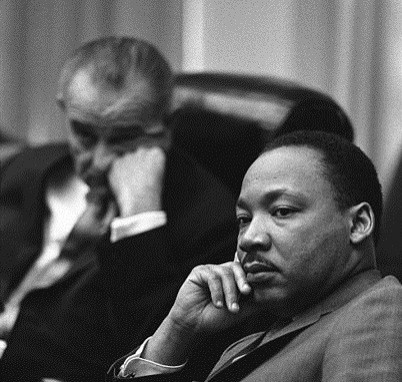One Way to Remember and Honor Rev. Martin Luther King Jr.
Column

In services around the United States Monday, the nation remembered the legacy of its greatest civil rights leader, the Rev. Martin Luther King, Jr., who, arguably, motivated and guided the nation through is greatest internal crisis since the Civil War -- the 1950s and '60s effort to end racial segregation and racial discrimination.
Further, regarding social change, young Americans and those young at heart can learn much from King's method and message. Dr. King's method, like Gandhi's and Henry David Thoreau's, was non-violent civil disobedience and a consistent, widespread consciousness-raising campaign to show Americans the better way, the more-just society, the more perfect union, the higher ground.
We aren't going to let any dogs or water hoses turn us around, we aren't going to let any injunction turn us around. - from Rev. King's Mountaintop Speech 1968
Moreover King's method and message are as relevant and powerful today: eventually -- maybe not in a year, a decade, two decades - but eventually, the philosophically stronger argument triumphs. And civilization advances.
What Would Dr. King Want Us to Do Today?
What's one way to honor and celebrate the life and message of King in our postmodern era? Arguably, to concentrate on a problem in U.S. society that King addressed in the 1960s civil rights movement. It's also a problem that's defining our era: the problem of unemployment.
Focusing on efforts to lower the U.S. unemployment rate is consistent with King's legacy because the civil rights leader's historic Aug. 28, 1963 March on Washington -- at which King delivered his I Have a Dream speech, was actually the March on Washington for Jobs and Freedom.
March on Washington organizers, including the National Association for the Advancement of Colored People, saw the rally as primarily designed to support civil rights and the Kennedy administration's civil rights bill. Other groups, including the Southern Christian Leadership Conference, viewed the rally as a chance to increase public awareness of both civil rights and economic issues. King viewed the rally as an opportunity to educate Americans on both problems. However, as the years passed, the jobs component of the speech has somehow not received the fame of the civil and social legislation for which the march is generally recognized as helping to pass: the U.S. Civil Rights Act of 1964 and the U.S. Voting Rights Act of 1965.
Yours truly will take great liberty here, but with research, to venture that King would want the nation today to rededicate itself to the jobs theme of the 1963 Washington rally. To say the renewed commitment on jobs could not occur at a more-needed time would be an understatement. The U.S. unemployment rate for African-Americans was 15.8 percent as of December 2011, well above the 8.5 percent rate for the nation, according to data compiled by the U.S. Labor Department. (It was 11.0 percent for Hispanic-Americans.) Further, the measured or official unemployment rate does not tell the entire unemployment story: in fact, both the African-American rate and overall U.S. unemployment rate are higher -- the rates do not inlcude discouraged workers -- people who have lost their job but officially aren't counted as unemployed because they aren't looking for work. Add those Americans, and the unemployment rate in both categories is considerably higher.
Hence, because of those unacceptably high unemployment rates, it is safe to say that Dr. King would look favorably on all efforts -- both public policy-based and private, large and small -- that help create jobs. He would view policies that lead to full employment as the philosophically stronger argument, the just policy, the right policy in 2012.
Maybe I could understand the denial of certain basic First Amendment privileges, because they [the Russians] hadn't committed themselves to that over there [in Russia, then the Soviet Union].
But somewhere I read...of the freedom of assembly.
Somewhere I read...of the freedom of speech.
Somewhere I read...of the freedom of press.
Somewhere I read...that the greatness of America is the right to protest for right!
- from Rev. King's Mountaintop Speech 1968
© Copyright IBTimes 2024. All rights reserved.





















